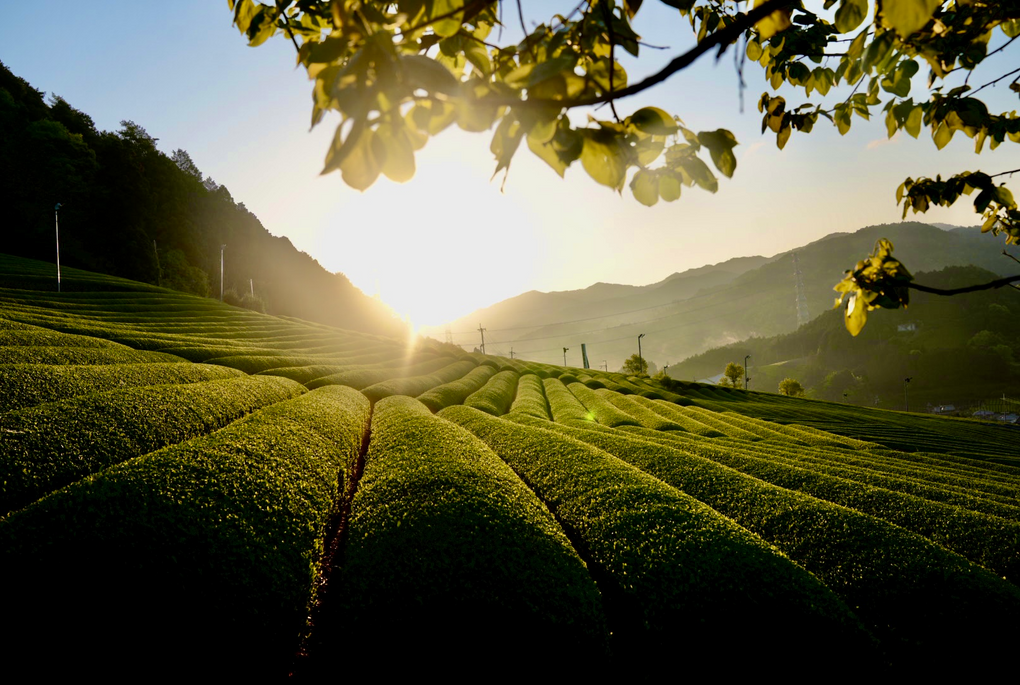Meet Our Matcha Makers

Wazuka is a small farming community of 3,000 people, and the town has been growing tea for over 800 years - it’s the cornerstone of the culture there. We recently started working with Nakai Organic Tea Gardens as we outgrew our former partner in the region. Once I tested their matcha, I scheduled a farm visit in Wazuka and was overjoyed to meet the team and tour their facilities - the care they take with their fields is unparalleled.
Matcha is very different from green tea because of how it’s both grown and processed. The process of growing real matcha is time and labor-intensive. Because of this, most of the tea being marketed as matcha is not actually that.
To produce proper matcha, the tea plants must be completely covered in shade cloth for about 20 days. After the top leaves (tea leaves and bud) are picked, they are steamed to stop the oxidation process and preserve the antioxidants and polyphenols. After the tea is steamed, it's then dried, which turns the tea into what is called a Tencha. At this point, the stems are removed and kept frozen to preserve them. After a few weeks, the tea is taken from the freezer and ground into a fine powder called matcha. Often tea producers will blend different tenchas to get specific-tasting matcha, much like winemakers do with grapes. Because of all this care, the detailed process, and the fact that with matcha, you are consuming the entire life equals many benefits for both topical application and consumption.

This process makes the plant produce much more l-theanine, the amino acid that gives matcha its umami and sweetness and balances the catechins. Matcha contains at least 3 times the amount of EGCG as popular green tea varieties (up to 137 times the amount of EGCG compared with certain brands of green tea). This antioxidant has been credited as giving green tea its health properties, which studies indicate include anti-inflammatory properties as well as cardiovascular protection.
Matcha, when applied topically, has been proven to be an effective way of preventing signs of aging - research indicates that it has the ability to protect your skin from UV-induced oxidative stress. Matcha is also rich in antioxidants and polyphenols, which help to reduce inflammation, calm skin, and improve appearance in tone and texture. We’ve been formulating our Superfood Smoothie Mask with Matcha for twenty years – this 6x award-winning mask has become one of our most-loved products because of the visibly instant results you get from one use.

I’m so grateful for the craftsmanship and care the Nakai Organic Tea Gardens family puts into the creation of their Matcha, and proud to be partnering with them to ensure the highest quality and care can be provided to our Pangea family.
Special thanks to Shota and Jose for also taking such good care of me on this journey.

-Founder and CEO

Explore Our Products:

